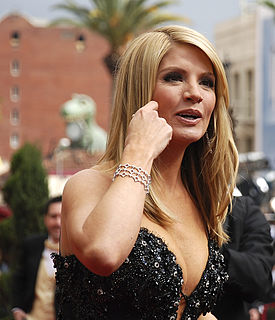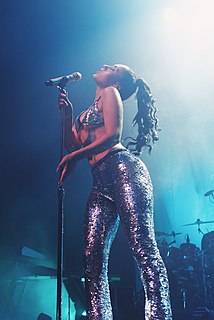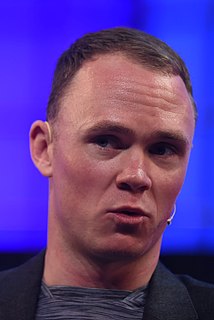A Quote by Amartya Sen
Ultimately, imperialism made even the British working classes suffer. This is a point which the British working classes found quite difficult to swallow, but they did, actually.
Related Quotes
I started taking classes and doing things that I had always wanted to do but couldn't because I was working. I signed up for a bunch of workout classes, and to my surprise, I realized I was enjoying it. Because I was working out so much, I started looking for more workout clothes and found a lot of redundancy - predictability that was uninspired. That's when I decided to start my own line.
When Benjamin Disraeli spoke of the 'two nations' in Britain he was perfectly right, only the working classes were not exactly a nation. But the gap in behavioral standards and in outlook, and of course in standards of living, were enormous. And in course of time, at least in countries such as Britain, the working classes more or less adopted and have become assimilated to the standards of the so-called 'gentle' classes. That is assimilation.The working class has hardly been able to govern, but they are no longer outsiders in relation to the state as they were before.
If emancipation of the working classes requires their fraternal conncurrence, how are they to fulfill that great mission with a foreign policy in pursuit of criminal designs, playing upon national prejudices, and squandering in piratical wars the people's blood and treasure? It was not the wisdom of the ruling classes, but the heroic resistance to their criminal folly by the working classes of England, that saved the west of Europe from plunging headlong into an infamous crusade for the propagation of slavery on the other side of the Atlantic.
As a kid, I was fortunate that we grew up near a children's theater, with all different classes and things; so as a kid I took classes there and as I got into high school I did all the community theater stuff. Then I came to college here in New York, going to Marymount Manhattan, and studied acting there. But most of the training I got was from working. Working with really great people.
The People's democratic dictatorship is based on the alliance of the working class, the peasantry and the urban petty bourgeoisie, and mainly on the alliance of the workers and the peasants, because these two classes comprise 80 to go per cent of China's population. These two classes are the main force in overthrowing imperialism and the Kuomintang reactionaries. The transition from New Democracy to socialism also depends mainly upon their alliance.
I would like to remind you that both assimilation and integration apply to the working classes in the nineteenth century, at least in Britain and also Germany. Like most outsider groups compared with the establishment, the working classes were treated more or less with the same kind of stigmatization as immigrant groups are treated today.
You must drop all your democracy. You must not believe in ''the people.'' One class is no better than another. It must be a case of Wisdom, or Truth. Let the working classes be working classes. That is the truth. There must be an aristocracy of people who have wisdom, and there must be a Ruler: a Kaiser: no Presidents and democracies.







































